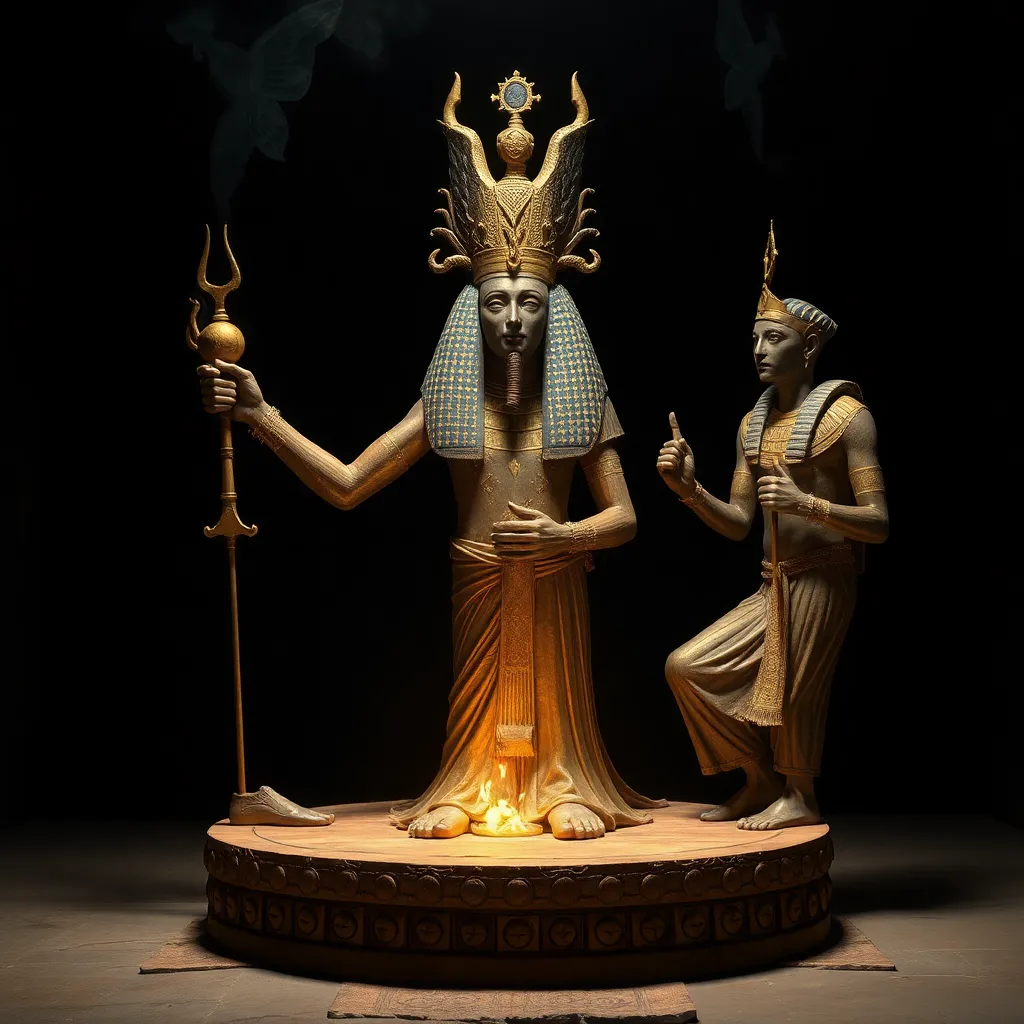The Role of Heka in Egyptian Marriage and Fertility Rituals
I. Introduction
In ancient Egyptian culture, Heka was not just a concept but a vital force believed to govern the mystical and magical aspects of life. Defined as both a deity and the embodiment of magic, Heka played a critical role in various aspects of daily life, including marriage and fertility rituals.
Marriage and fertility were central to ancient Egyptian society, as they ensured the continuation of family lines and the stability of the community. This article explores how Heka influenced these essential rituals, shaping the lives of ancient Egyptians.
The purpose of this article is to delve into the historical context of Heka, its significance in marriage and fertility rites, the role of practitioners, and the lasting legacy of these ancient practices.
II. Historical Context of Heka
The origins of Heka can be traced back to the early dynastic period of ancient Egypt, where it was deeply intertwined with the spiritual and physical realms. Initially, Heka was viewed as a divine force that existed in the cosmos, later becoming associated with the god Heka, who personified magic and medicine.
Heka was regarded as a powerful form of magic, connected directly to the divine. The ancient Egyptians believed that Heka was present in the creation of the world and was a tool that gods used to maintain order and balance in the universe.
Culturally, Heka permeated daily life and rituals, manifesting in various practices ranging from healing to protective spells. It was an integral part of the social fabric of ancient Egypt, influencing everything from agriculture to personal relationships.
III. Marriage in Ancient Egypt
Marriage customs in ancient Egypt were diverse, reflecting the social and economic structures of the time. Generally, marriages were arranged, emphasizing alliances between families rather than romantic love.
Heka played a significant role in marriage ceremonies. Rituals often included the invocation of Heka to bless the union, ensuring fertility and prosperity for the couple. Some common practices included:
- Offering prayers to Heka for a successful marriage
- Utilizing amulets inscribed with spells invoking Heka’s protection
- Performing rituals to invite fertility and abundance into the household
Symbolically, marriage rituals were laden with meanings associated with unity, fertility, and the continuation of family lineage. Heka’s involvement underscored the belief that divine support was crucial for a successful and prosperous marriage.
IV. Fertility Rituals in Ancient Egypt
Fertility was of paramount importance in ancient Egyptian society, as it directly affected agricultural success and population growth. The ability to bear children was viewed as a blessing, and couples often engaged in various fertility rituals to promote conception.
Common fertility rituals included:
- Prayers and offerings made to deities associated with fertility, such as Hathor and Isis
- Rituals performed in the presence of Heka, invoking her power to enhance fertility
- Use of specific herbs and charms believed to attract fertility
Heka’s role in these rituals was to enhance the effectiveness of the rites, ensuring that couples received the divine favor needed for childbearing. The belief in Heka’s power provided comfort and hope to those seeking to expand their families.
V. Heka Practitioners: Priests and Priestesses
Religious figures, particularly priests and priestesses, were the key practitioners of Heka. They were tasked with performing rituals, invoking spells, and administering blessings in various contexts, including marriage and fertility.
These practitioners underwent extensive training in the arts of Heka, learning the sacred texts and rituals that allowed them to harness its power effectively. Their responsibilities included:
- Conducting ceremonies and rituals
- Creating and distributing amulets and charms
- Providing counsel and guidance to individuals seeking Heka’s aid
Notable practitioners included high priests of Heka, who held significant influence in society, often mediating between the divine and the people to ensure harmony and prosperity.
VI. Artifacts and Texts Related to Heka
Numerous ancient texts reference Heka in the context of marriage and fertility. The Pyramid Texts, Coffin Texts, and various papyri contain spells and incantations specifically invoking Heka’s power for these purposes.
Archaeological findings have unearthed artifacts such as amulets, ritual tools, and inscriptions that illustrate the cultural practices surrounding Heka. These artifacts often depict:
- Symbols associated with Heka, like the ankh and the eye of Horus
- Scenes of rituals performed to invoke Heka’s blessings
- Objects used in fertility rites, including offerings and figurines
Interpretations of these artifacts reveal the profound influence of Heka in the lives of ancient Egyptians, illustrating the deep-seated belief in the power of magic in shaping their destinies.
VII. Modern Interpretations and Legacy
In contemporary practices, Heka is often viewed through the lens of modern spirituality and neo-paganism. Many people today incorporate elements of Heka into their rituals, seeking to connect with the ancient wisdom of the Egyptians.
The influence of ancient Egyptian marriage and fertility rituals can be seen in various aspects of modern culture, including:
- Ritual practices in modern paganism
- Interest in ancient Egyptian spirituality and mythology
- Symbolism in art and literature
The ongoing fascination with Heka highlights the enduring legacy of ancient Egyptian practices, as individuals seek to understand and incorporate these spiritual elements into their lives.
VIII. Conclusion
In summary, Heka played a crucial role in the marriage and fertility rituals of ancient Egypt, reflecting the society’s beliefs in magic, divine intervention, and the importance of family. Understanding these practices provides insight into the cultural and spiritual lives of the ancient Egyptians.
Reflecting on the significance of Heka in today’s context helps us appreciate the rich tapestry of human belief systems and the ways they influence our lives. For those intrigued by ancient Egyptian spirituality, further exploration of Heka and its multifaceted role in rituals is both enlightening and rewarding.




